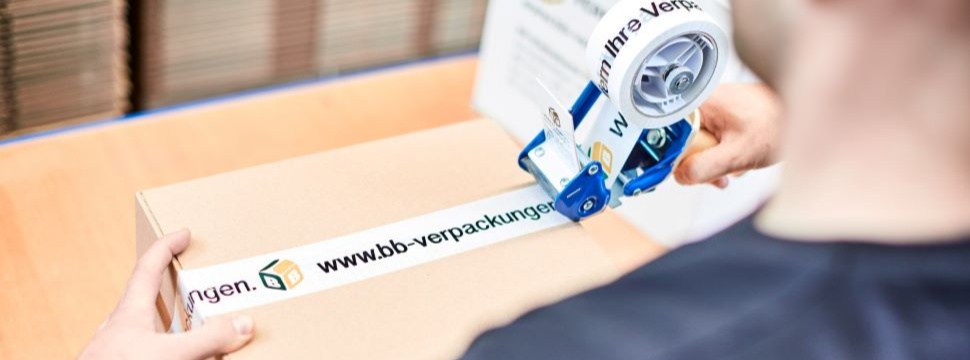Registered, packed, shipped? - Packaging regulations for industry and wholesale
News General news
Whether made of cardboard, plastic or wood - packaging is essential to ensure that goods reach their destination undamaged. Depending on the goods being transported, high requirements apply to the material and processing of the packaging.

Jens Mühlenbruch, responsible for project and sales development at BB-Verpackungen, knows: "Industrial packaging is indispensable in a global world. Not only do they have to meet the appropriate safety standards for transport, but they also have to comply with regulations regarding recyclability and reusability. Even before preparing for shipment, there are therefore a number of points that require special attention."
Careful with the choice of material
In addition to the more general requirements for stability, industrial packaging must also be particularly resistant to physical influences. "If electronic goods are shipped, for example, the packaging must not only be antistatic but also moisture-repellent and protect against corrosion," explains Jens Mühlenbruch.
"For the transport of dangerous goods, other regulations apply in turn, for example, the packaging material must be demonstrably resistant to chemicals in the case of certain hazardous substances."
In addition, so-called dangerous goods boxes are tested for their properties in case of falls and under pressure as well as for their stackability, taking into account the goods being shipped.
Only when the cardboard box passes the test does it receive the corresponding safety certificate in the form of a UN packaging number. This indicates who carried out the test and which substances may be transported. Companies should therefore make sure they have the correct certification when choosing packaging. In addition, dangerous goods packaging must be marked with the hazard class of the goods being transported.
Recycling obligation
Apart from the safety issue, recyclability and ensuring the circular economy also play an important role. In Germany, the legal regulations in this regard are laid down in the Packaging Act. "Not only manufacturers of packaging, but also companies that put it into circulation for the first time are responsible for the disposal of the materials used," explains Jens Mühlenbruch.
"To do this, they must register with the Central Packaging Register and enter their details in the publicly accessible LUCID register." In the case of packaging that is subject to system participation, the law also requires licensing by a state-recognised dual system.
"The operators of these systems take care of the recycling of the packaging instead of the companies placing it on the market, for which a certain amount is incurred annually," the packaging expert explains.
The costs depend on the quantity in kilograms per year on the one hand and on the material used on the other.
"To make the calculation easier for our customers, we at BB-Verpackungen offer the service of supplying the weights of our products directly," Jens Mühlenbruch concludes. "In addition, we work closely with partners who are responsible for licensing."










